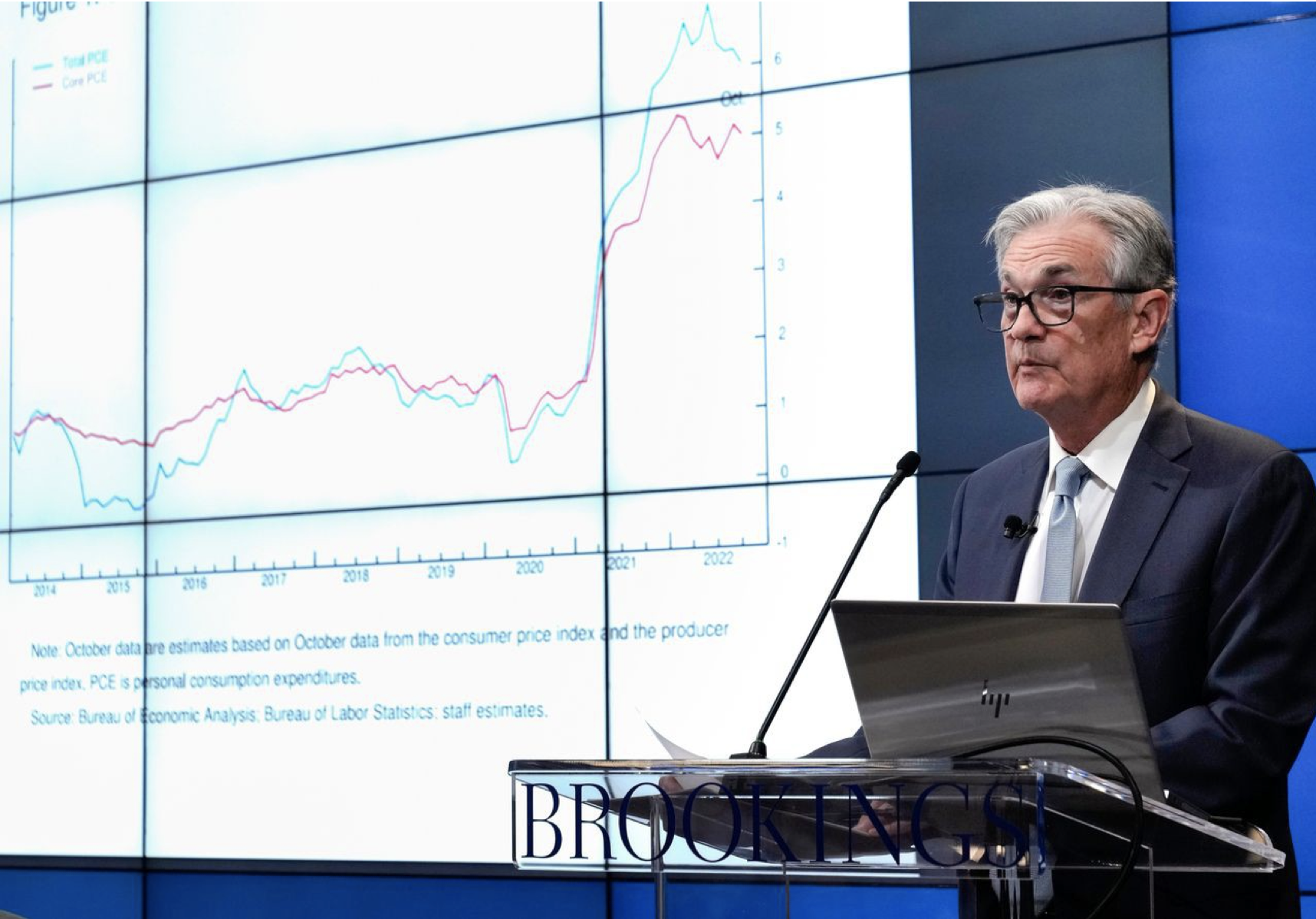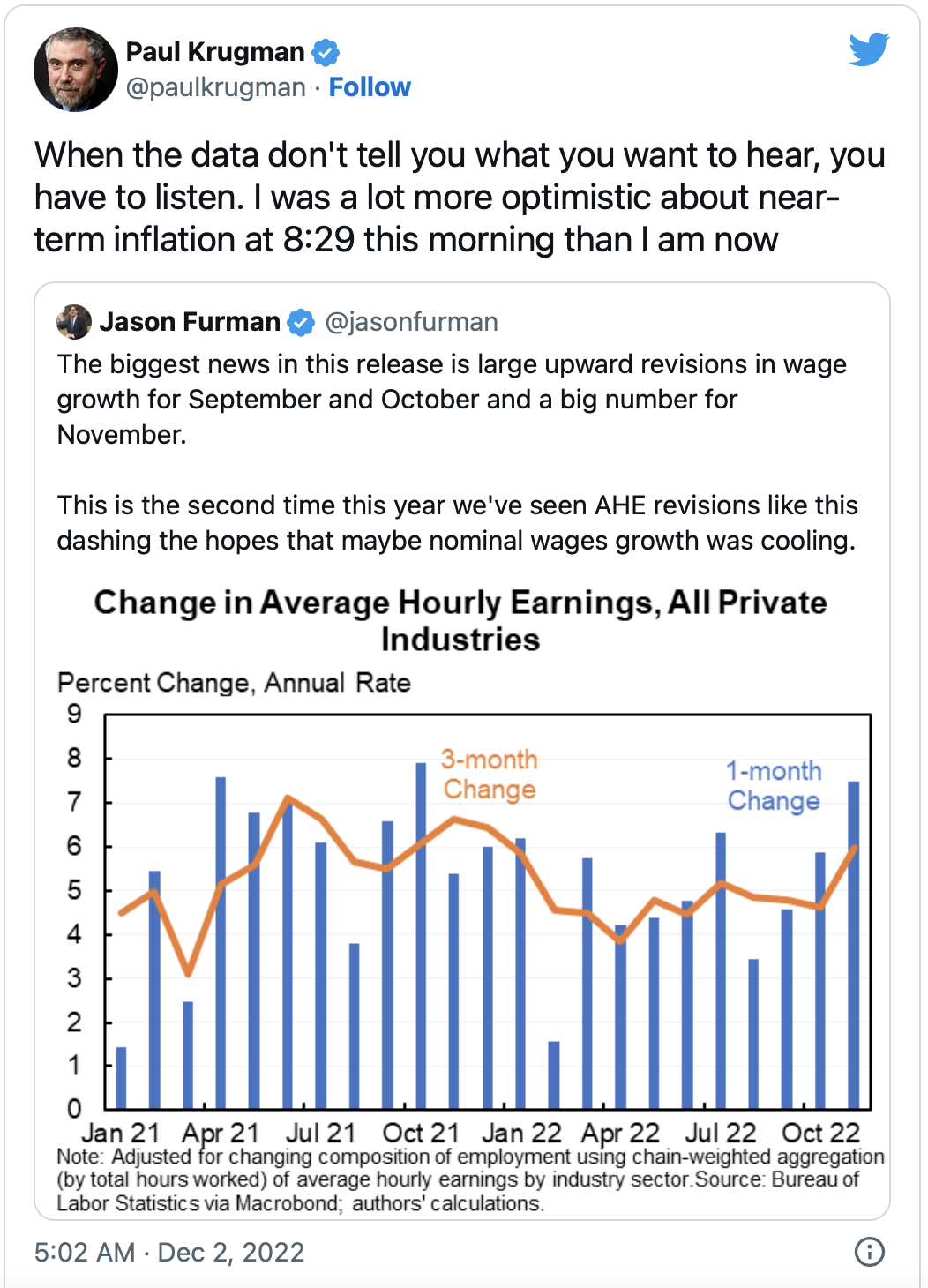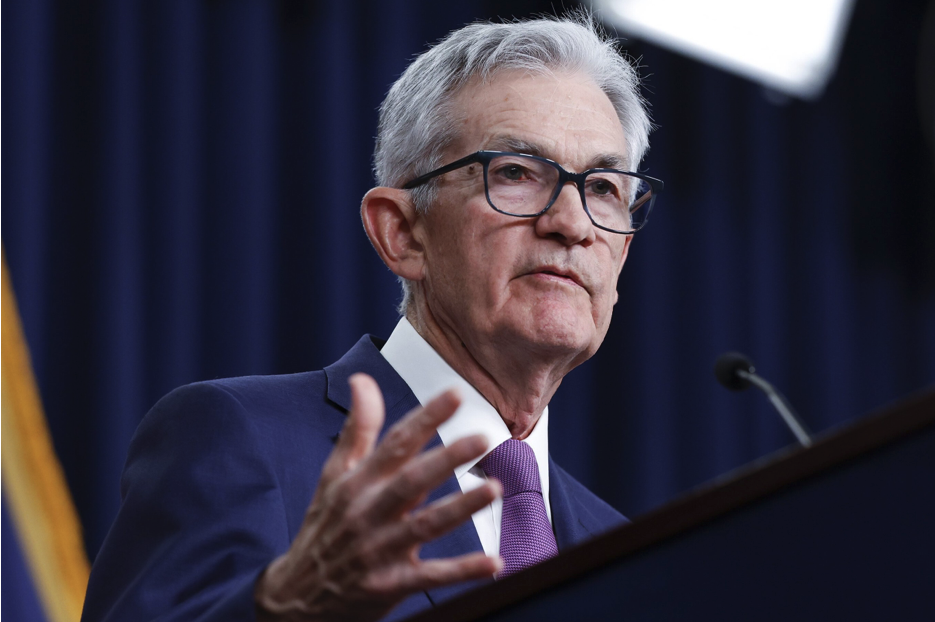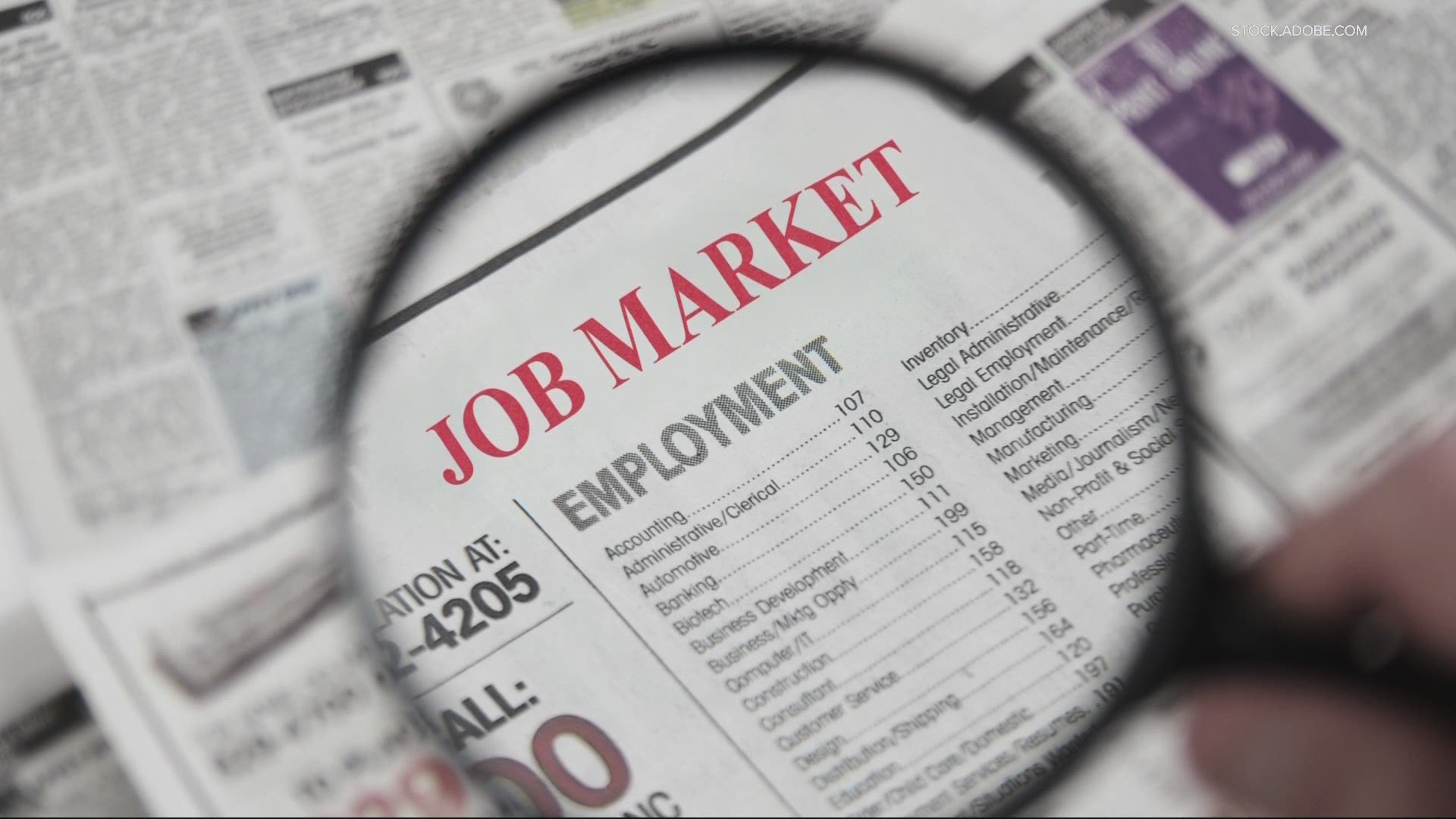Fed’s December meeting may see jumbo interest rate hike back on table after jobs data

Fed Chairman Jerome Powell speaks at the Brookings Institution on Wednesday. Credit: DREW ANGERER/GETTY IMAGES
Greg Robb @ Market Watch
‘This is their worst fears realized,’ one economist says
The strong wage gains in the U.S. November jobs report published Friday may put the possibility of a 0.75 percentage point interest rate hike back on the table for the Federal Reserve’s policy meeting in two weeks, instead of a more moderate half-point hike, said Diane Swonk, chief economist at KPMG US

“I don’t know how you can put 75 basis points back on the table. With the increase in wages, it is going to be hard for them. This is their worst fears realized,” Swonk said, in an interview.
The large wage rises will translate into higher service sector inflation and puts a “floor” under the inflation rate around 4%, Swonk said.
Fed Chairman Jerome Powell on Wednesday highlighted that wages are critical in service sector inflation.
It is easier to get inflation from a 6% rate to 4% that it is to get it all the way down to 2%, Swonk noted.
New York Times columnist Paul Krugman tweeted that he was less optimistic about inflation after the jobs data come out.
Carl Tannenbaum, chief economist at Northern Trust, said the strongest argument for hawkish members who might support a 0.75 percentage point hike is to show how easy financial conditions have become in the past month.
In general, higher stock prices and falling credit spreads do not help stifle inflation.
At the end of the day, Swonk or Tannenbaum both think the Fed will slow down the pace of purchases to a 50 basis point move, but Swonk called it “a close call.”
To appease more hawkish members to support a smaller hike, Swonk said the Fed will signal a higher terminal rate for the Fed funds rate.
She puts the top end of the new terminal rate range at 5.5% – up from 4.75% in September.
U.S. stocks DJIA SPX remained lower on Friday after the job data was released. The yield on the 10-year Treasury note BX:TMUBMUSD10Y rose to 3.6% before retreating back to 3.5%.



